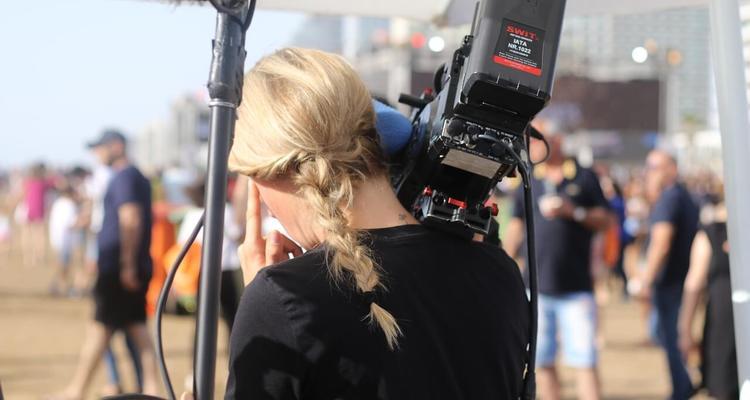Navigating and responding to gendered power relations in European Cities’ food environments
“I feel that if we do not talk about [gender] and analyse [gender] aspects enough. The understanding that we have about Food Policy Networks and [internal] processes is limited.”, highlighted a participant during a series of workshops FoodCLIC designed to collect experiences, foster knowledge-sharing and build capacity around gender relations.
The gender lens is crucial for understanding inequalities. Historically, formal institutions (policies, regulations and legislation) and informal ones (cultural beliefs and practices) have structured social relations based on gender differences, particularly marginalising women, trans and non-binary persons. In Europe, gender discrimination at work remains visible not only through a persistent income gap between men and women but also in terms of access to decision-making, disparities in perceived legitimacy, and gender-based violence (from microaggressions such as mansplaining to outright harassment) (ILO, 2007). These established inequalities call for mainstreaming gender across all policy areas (EIGE, 2025).
While there is increasing recognition that efforts to build more sustainable and equitable food systems must encompass a gender lens (FAO, 2025), in practice, it remains uncertain how to identify gender-based injustices and suitable strategies to address them. Much remains to be heard and addressed.
In FoodCLIC, multi-disciplinary teams who are collaborating in so-called Living Labs located in eight different European cities, received support in diagnosing core challenges, prognosing essential capacities and deepening gender-aware practices. During the workshops, attended by food system experts, researchers and public sector employees, several critical questions arose:
- How can we respond confidently and proactively when gender-based conflicts emerge within working groups (e.g. Living Labs)?
- What language and tone should be adopted when intervening on the spot while encouraging accountability without escalating tensions?
- And how can we build the capacities that enable us to address these conflicts with sensitivity to intersectionality (i.e. gender experiences are interlinked with social factors such as class, ethnicity/race, age, (dis)ability, nationality, migration status)?
These are important questions, as women and men make uneven experiences in their local food and work environments - both in formal and informal interactions - which can be summarised in the following three key aspects: gendered division of labour, intersectionality and gender-based conflict.
Gendered division of labour
Gender expert Martina Rogatto highlighted: “It is not about what I do, but who I am”. Across the eight European cities, participants and food system experts pointed out clear gender gaps in who gets paid (and who doesn’t), who holds stable jobs, and who makes decisions. In Italy (Plain of Lucca), the Netherlands (Amsterdam) and Hungary (Budapest), women often lead practical action but are largely underrepresented in formal food governance spaces. One exception was the Spanish FoodCLIC Living Lab, which emphasised women's leadership in innovative food policy processes. The gender perspective allows us to shed light on continuity in power dynamics and the lack of leadership change within food governance spaces. Gender also shapes how collaboration unfolds: women tend to take responsibility for co-creation and power-sharing. At the same time, men are still more likely to dominate discussions, resist letting go of control and sharing institutional power. In the context of FoodCLIC, these inequalities are also reproduced along the collaboration line between administrative partners and researchers, with women researchers often feeling unheard and their expertise being ignored. These patterns follow familiar gender binaries that, if not explicitly invoked, can risk quietly reproducing the very inequalities we want to change. If these everyday power imbalances remain unspoken, how can we ensure they don’t persist in the food systems we want to transform? Living Labs and other expert groups focusing on food environments could benefit from looking inwards and reflecting on internal gendered power relations as part of their efforts to transform food systems.
Intersectionality
Embracing intersectionality allows us to understand gender not as an abstract idea, but as an embodied and tangible reality lived by men, women, and non-binary folks differently across class, race, sexuality, dis/ability and other social markers of difference (GENDERACTIONplus, 2024). Intersectionality complicates generalising homogeneous categories such as “vulnerable groups”. It opens space for interventions and innovations that are aware that within vulnerable groups, individuals experience distinct and compounded forms of discrimination and privilege based on their multiple overlapping identities. Intersectional analysis attends to additional layers of disadvantages and structural barriers. As a workshop participant put it, “Diversity is always important, so intersectionalities need to be considered. Perhaps gender diversity is not achieved, but other intersectionalities are?” This reflection reminds us that the complexity that surfaces through intersectional analyses shouldn’t demotivate the multi-disciplinary working groups to pursue more nuanced and critical analyses and interventions. Intersectional analyses may be uncomfortable for some, but they also offer potential pathways for genuine and lasting just transformation when taken seriously.
Gender-based conflicts
It’s definitely not an easy task to identify and skilfully address gendered issues in the immediate work context. Among the few men who participated in the FoodCLIC workshops, most noted that it was the first time they spoke explicitly about gender dynamics. It is therefore important to first carefully sensitise all participants and shy listeners to a vocabulary used to recognise and address gender-based conflicts.
Giving feedback after an incident (e.g. a moment of micro aggression) can be an equally valuable and effective strategy for conflict resolution and prevention. We should not feel ashamed or helpless when we cannot speak up or apologise in the moment, but we do have a responsibility to give feedback, individually or collectively, when our bodies feel calm and less afraid of each other in whichever form feels dignifying, appropriate and respectful.
An enduring collective learning from the FoodCLIC workshops is that gender-based conflicts are often perceived as exceptional rather than inevitable in our (inter-)personal lives situated within patriarchal societies and their prescribed gender hierarchies. Similarly, conflict remains perceived as something to avoid, prevent and mitigate instead of something that can be embraced as an opportunity to learn, increase care and repair power imbalances across our food systems’ micro and macro spheres. At the workplace, those in a position of power often resist engaging with gender-based conflict. On the one hand, they often fail to recognise that it is already happening. On the other hand, addressing these conflicts would require confronting their own privileges and authority and potentially letting go of power. Most people don’t want to see their power decrease. Against any romanticisation of conflict, which could risk depoliticising it, we acknowledge that it may bring discomfort, fear and anxiety for some; yet naming these effects is a crucial first step toward strengthening our ability to self-identify our preferred ways to respond.
Much work remains to leave behind practices that exercise power over people by exploiting social differences. May we tip the balance to share power with each other and have the power to respond effectively to inevitable gender-based conflicts.
Written by the FoodCLIC consortium members and co-organisers of the gender workshops Guilherme Raj (University of Surrey), Tobia Jones (Vrij Universiteit Amsterdam and Living Lab Amsterdam), Maria Vasile (Università di Pisa and Living Lab Lucca) and Arianna De Conno (Universitá di Pisa and Living Lab Lucca).
References
European Institute for Gender Equality (2025). “What is Gender Mainstreaming”. Retrieved from: https://eige.europa.eu/gender-mainstreaming/what-is-gender-mainstreaming?language_content_entity=en, in July 18th 2025.
FAO (2025). “Gender”. Retrieved from: https://www.fao.org/gender/learning-center/thematic-areas/gender-and-inclusive-food-systems-and-value-chains/en, in July 18th, 2025.
GENDERACTIONplus (2024). “A New Era of Inclusion and Intersectionality”. Retrieved from: https://genderaction.eu/wp-content/uploads/2024/02/GENDERACTIONplus_Position-paper_A-new-ERA-of-inclusion-and-intersectionality.pdf, in August 11th 2025.
International Labour Organisation (2007). “Discrimination at Work in Europe” in Declaration on Fundamental Principles and Rights at Work.
Publishing date:
FOODCLIC. We are connecting people, food, policy & places.
FoodCLIC is a four-year project funded by the EU. The project runs from September 2022 to February 2027. The acronym FoodCLIC stands for 'integrated urban FOOD policies – developing sustainability Co-benefits, spatial Linkages, social Inclusion and sectoral Connections to transform food systems in city-regions


